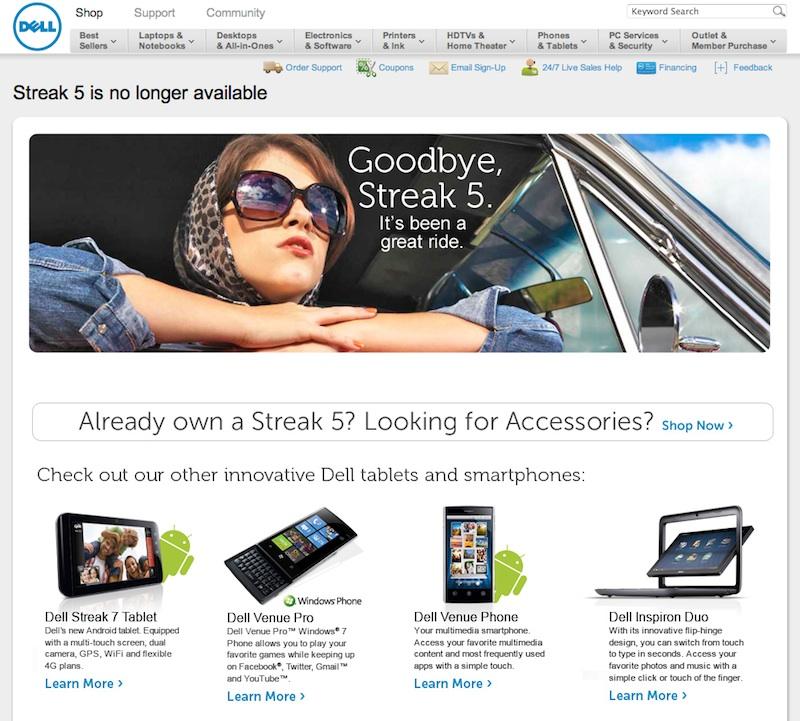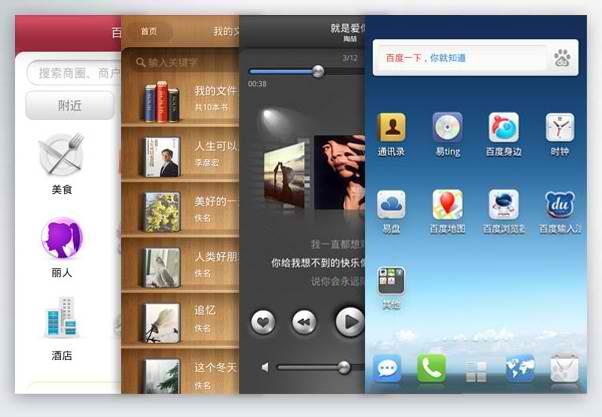Baidu, which has risen to become the sixth most-visited site according to Alexa, announced its Android spinoff in Beijing last week. Baidu Yi will replace Google's apps with in-house developed alternatives that target the Chinese market.
Reuters reports that Dell has quickly pledged its support for Baidu's efforts, especially as they relate to tablets.
"We have a partnership with Baidu and you know we have the Streak 5 tablet, so the partnership will be in that space," said a Dell spokeswoman.
The 5-inch hybrid tablet/smartphone was discontinued in the U.S. in August after a self-declared "great ride."
The company also indicated it will cooperate with Baidu on mobile handsets. But, it will likely face stiffer competition from Apple beginning this fall, as the Cupertino, Calif., iPhone maker is expected to begin offering its popular handset on both China Mobile and China Telecom in addition to its original partner China Unicom.
Baidu Yi will feature a self-developed Maps app, a Google Places rival, an iBooks-like ebook reader and a custom music player. Its current Android apps, such as a Chinese character input tool, will also ship bundled with new devices.
"I don't think Baidu is targeting the low-end segment of the market, if they are there are plenty of local Chinese vendors they can work with...This could mean that Baidu may have ambitions for the international market because Dell is an international brand which they can leverage," said Shanghai-based Gartner research director Sandy Shen.
Dell did not state when the first devices from its partnership with Baidu would reach the market, but Chinese media have cited sources who claim they could arrive as early as November. The partnership could be a reaction to Google's recent decision to acquire Motorola for $12.5 billion and get more directly involved in the hardware side of the industry.
The PC and mobile industries are currently in the midst of a significant shake-up as companies adjust their alliances and enter and exit markets. Nokia is set to release its first Windows Phone 7 devices from its partnership with Microsoft later this year, while Hewlett-Packard has killed off its webOS hardware division and is looking into spinning off or selling its PC business.
 Josh Ong
Josh Ong








-m.jpg)






 Christine McKee
Christine McKee
 Marko Zivkovic
Marko Zivkovic
 Mike Wuerthele
Mike Wuerthele

 Amber Neely
Amber Neely
 Sponsored Content
Sponsored Content
 Wesley Hilliard
Wesley Hilliard










35 Comments
And you thought Google was bad for privacy!You won't catch me dead with a Baidu Snoop Phone.
It's so crazy how quickly the "non-Apple" side of mobile tech is changing and "borrowing" ideas from Apple. Seems like knee-jerk reactions. Meanwhile Apple continues to cruise along at its own pace, not too worried about what's happening around it. They compete with themselves.
And you thought Google was bad for privacy!You won't catch me dead with a Baidu Snoop Phone.
With the minimum 600 million possible clients thus 2x the size of the US total population I don't think Baidu has you in mind.
It's so crazy how quickly the "non-Apple" side of mobile tech is changing and "borrowing" ideas from Apple. Seems like knee-jerk reactions. Meanwhile Apple continues to cruise along at its own pace, not too worried about what's happening around it. They compete with themselves.
Didn't you know that that kills innovation. <sarcasm>
So.. why not partner with ZTE if they want to sell in China. Dell does not even register on the radar over there.

Keep in mind Lenovo is dominating in the business world here in US after buying IBM. Why not have a fellow Chinese company make your phones and take over the US market while creating a brand name at the same time. Seems very un-chinese to me.